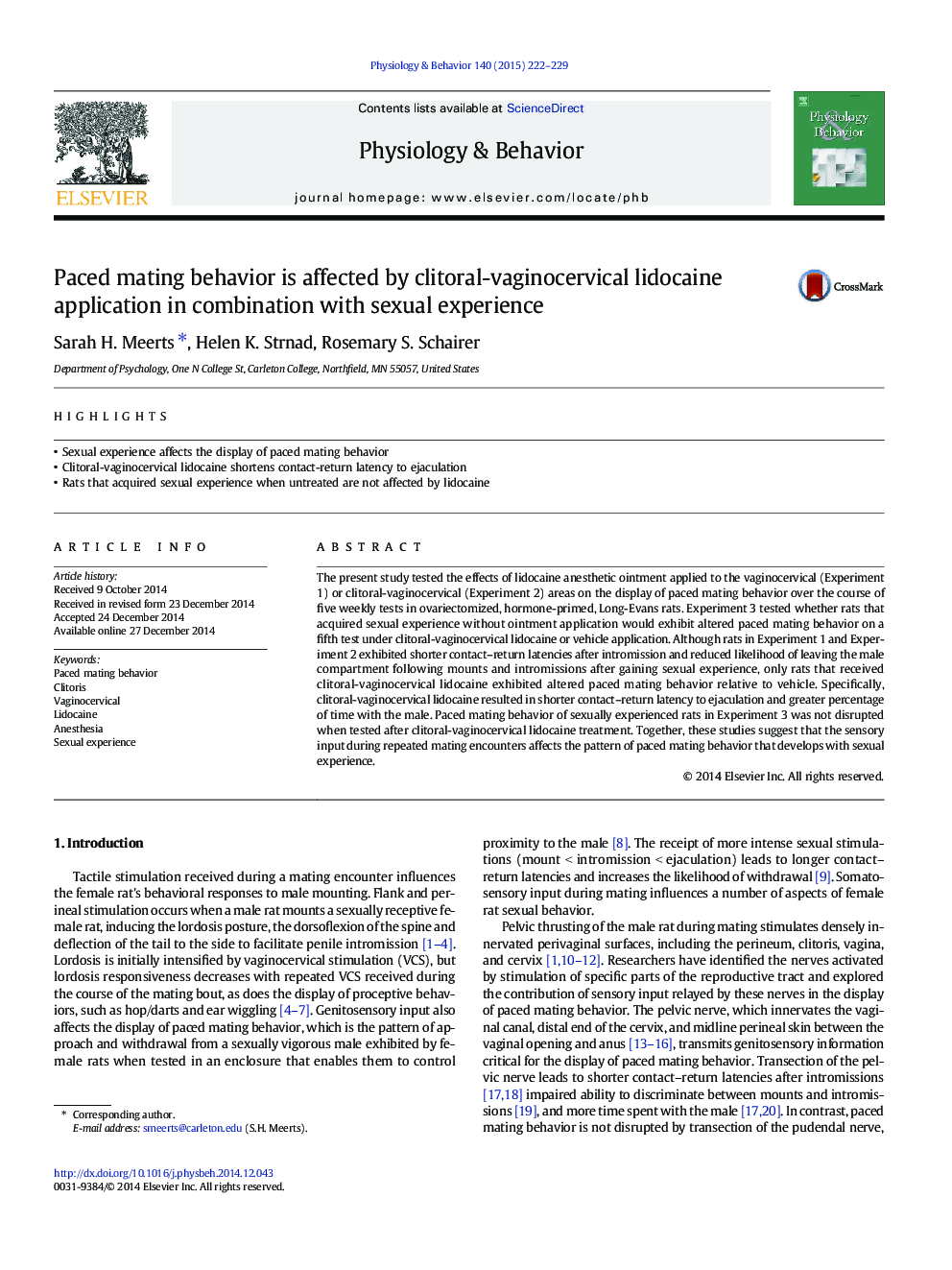| Article ID | Journal | Published Year | Pages | File Type |
|---|---|---|---|---|
| 5923853 | Physiology & Behavior | 2015 | 8 Pages |
â¢Sexual experience affects the display of paced mating behaviorâ¢Clitoral-vaginocervical lidocaine shortens contact-return latency to ejaculationâ¢Rats that acquired sexual experience when untreated are not affected by lidocaine
The present study tested the effects of lidocaine anesthetic ointment applied to the vaginocervical (Experiment 1) or clitoral-vaginocervical (Experiment 2) areas on the display of paced mating behavior over the course of five weekly tests in ovariectomized, hormone-primed, Long-Evans rats. Experiment 3 tested whether rats that acquired sexual experience without ointment application would exhibit altered paced mating behavior on a fifth test under clitoral-vaginocervical lidocaine or vehicle application. Although rats in Experiment 1 and Experiment 2 exhibited shorter contact-return latencies after intromission and reduced likelihood of leaving the male compartment following mounts and intromissions after gaining sexual experience, only rats that received clitoral-vaginocervical lidocaine exhibited altered paced mating behavior relative to vehicle. Specifically, clitoral-vaginocervical lidocaine resulted in shorter contact-return latency to ejaculation and greater percentage of time with the male. Paced mating behavior of sexually experienced rats in Experiment 3 was not disrupted when tested after clitoral-vaginocervical lidocaine treatment. Together, these studies suggest that the sensory input during repeated mating encounters affects the pattern of paced mating behavior that develops with sexual experience.
